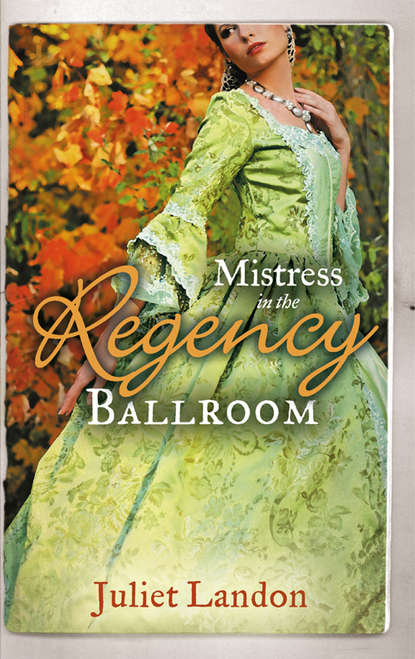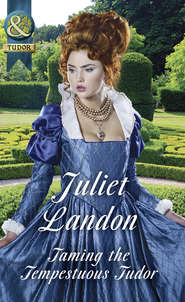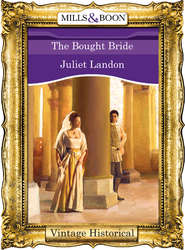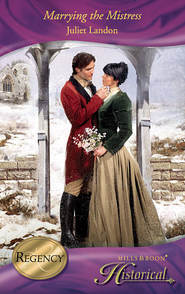По всем вопросам обращайтесь на: info@litportal.ru
(©) 2003-2024.
✖
Mistress in the Regency Ballroom: The Rake's Unconventional Mistress / Marrying the Mistress
Настройки чтения
Размер шрифта
Высота строк
Поля
She felt her heart thudding, her eyes wanting, but not wanting, to take in more of him, his gloved hands on the reins, now reaching to pat the glossy neck before him, settling his mount as she wished he would settle her. She had never felt so unsettled. So overlooked. There are more interesting things, she told herself, to occupy your thoughts. Yet for the life of her she could not will them to return.
The quill was laid to rest as a shuddering sigh wafted across the page, and for several moments she stared at the words as if someone else had written them. But that was what writers must do to record every scrap of information that came their way, especially writers to whom such things came with exceptional rarity, as one had today. Was it worth recording? she asked herself, closing the book and returning it to the drawer. Yes, it was. Comfortable or not, she could hardly afford to let it pass, her experience of men being what it was.
The ride to Hampton Court Palace on the following day, ostensibly to visit Mr Waverley’s elderly mother, was augmented by five of Letitia’s pupils, two of whom were local day girls who, if they had wished, could have stayed with their parents. So while Miss Gaddestone and Mrs Quayle rode in the barouche, the others rode their own horses, some of which were stabled with Letitia’s. As a good horsewoman, she had been keen to introduce riding lessons into her list of subjects, there being too few young ladies of seventeen, she said, who knew how to look easy in the saddle. She had no say, however, regarding the quality of the mounts their fathers had provided for them, which was something she would have to work on, once things became more established.
The cavalcade of one carriage and seven riders ambled along the river path to the village of Hampton with not quite the striking image Letitia had had in mind at the outset, though she did not believe they would be much on show at a place like Hampton Court. The last time she had visited, the gardens had been overgrown and the elderly inhabitants too intent on their feet to notice any passing horseflesh.
While Mr Waverley rode round to the south side of the palace where his mother had a grace-and-favour residence, Letitia led the way round to The Green, and from there in through the West Gate, which, she had been informed, would lead them directly to the place where they could leave the horses and go on foot into the courtyards.
What Mr Waverley had failed to mention was that the large area from gate to palace, known as the Outer Green Court, was the province of the cavalry academy where recruits underwent intensive training before joining Marquess Wellington’s army in Spain. Along the left-hand side ranged the red-brick barrack block, the yard in front of which was packed with mounted men in blue tunics with silver frogging across their chests, white pantaloons tucked into shining boots, tall fur helmets, with braids, tassels, belts and buckles, sashes and saddlecloths, curved scabbards and yards of silver cord. As the barouche and six riders began to cross the parade ground, large glossy horses with stamping hooves and jingling harness moved off in synchronised groups, with civilians around the perimeter to watch the exercise.
But Letitia’s elderly coachman, slightly deaf and revelling in his audience, could not hear her call to him to stop, the blast of a trumpet coinciding with her warning and, at the same time, spooking several of the horses. Almost unseating two of the pupils, the mounts half-reared and pranced out of control while others scattered and wheeled, preventing Letitia from reaching the coachman who, still oblivious to the danger, thought it unlikely that a group of cavalry would take precedence over his carriage and pair. In this, however, he was mistaken, for the cavalry recruits threatening to mow him down were the 10th Light Dragoons, who believed by divine right that they took precedence over everything at all times.
Torn between stopping the carriage and rounding up her struggling pupils, Letitia yelled at Miss Gaddestone who was half-standing, waving her arms like a windmill at the advancing line of dark blue tunics in the hope that they would wait. Using a more immediate approach, Mrs Quayle took up her parasol like a golf club and swiped wildly at the coachman, sending his top hat bouncing like a football under the feet of the cavalry horses. She said afterwards, by way of apology, that she had been aiming for his shoulder. Nevertheless, it brought him at last to an abrupt halt.
The six attractive female riders having trouble with their mounts and the coachman having trouble with his dignity were immediately surrounded by the elite cavalry corps, aged from eighteen to twenty-two, who were not so disciplined that they could conceal their grins in view of the farce before them. Nor could they totally ignore the plunging, whirling, side-stepping and reversing mêlée that blocked their way. Unable to resist the temptation, a few of the young men caught the reins of the worst-behaved horses just as their commanding officer, on a very large bay gelding, rode through the ranks as if the Red Sea was parting for him, and came to a halt beside the coachman’s box.
Beneath the black fur of his helmet, the officer’s expression was thunderous as he barked at the furious coachman. ‘I take it you were never a part of His Majesty’s Services, man?’
‘No, sir. I was not!’
‘Then you may not be aware that a blast on a trumpet is some sort of signal, and that not even a dimwit with half a brain would take a carriage forward across a line of cavalry unless he had a death wish. Who is in charge of this nursery?’
‘I am responsible for the safety of these young ladies,’Letitia called out to him. ‘And if the commanding officer had his wits about him, he would have seen that all was not clear before he issued his command. I hope this will be the worst that can happen to your men when they go into battle, for they will be—’
Although the two antagonists had recognised each other instantly, Captain Lord Rayne had decided not to listen, turning his mount away before her insults were finished, snapping and barking at his men and Letitia’s coachman, bringing order to the chaos so quickly and efficiently that even the horses obeyed him. Letitia was the last one to pass him, but neither of them cared to acknowledge the other by so much as a glance, and she was left to bring up the rear, seething with anger and humiliation under the barely controlled grins of the men and the wide-eyed stares of the spectators. There was a scattering of applause as she left.
The drumming of hoofbeats on the gravel behind her made her turn to see a young cavalryman with a boyish face drawing alongside, holding out a battered top hat that had once been black. ‘Captain’s compliments, ma’am,’ he said.
The discomfiting episode of the parade ground was bound to have repercussions that would follow Letitia’s party, quite altering the purpose for which she had brought them, which was to see the palace architecture and for the riding experience. Now, the excited pupils were far more interested in the young men who had dashed to their aid—which was how they preferred to see it—than in the beauty of the patterned brick chimneys, and they begged to be allowed to watch, if only for a few minutes, the men performing their battle drill. Letitia could hardly refuse. So, leaving the girls with their two chaperons, she went off in search of the grace-and-favour apartments where Mr Waverley’s mother lived.
The maze of stone-flagged passages in the Tudor part of the palace soon gave way to the more recent but equally convoluted muddle of courtyards and poky chambers of the William and Mary additions, which had once been the royal apartments, but were now shabbily redundant.After wandering without success from one long passageway to another, she sat down upon a dusty windowseat in a small bare room that might in earlier days have been a butler’s pantry. Looking out on to yet another cobbled courtyard, she tried to remember by which side she had entered it, and which might conceivably be the south side.
Before she could draw back, a tall uniformed figure strode through the colonnade opposite her and stopped to look about him. Almost identical in dress to dozens of others, there was no mistaking the set of the powerful shoulders, the length of muscular leg, the officer’s arrogant bearing that singled him out from all the rest. She did not watch to see where he went, but held herself flat against the cold wall, hoping that the sage-green velvet habit would not be seen against the mossy brickwork. He was the last, the very last person she wished to bump into here, of all places.
Listening for the smallest sound, she held her breath while trying to distinguish the rattle of roosting pigeons and the thudding of her heart from the hard echo of a footfall upon stone floors. It grew louder, then stopped at the doorway and took a step inside.
Lord Rayne ducked his head beneath the lintel. ‘What’s this?’he said, softly. ‘Abandoning your chickens, Mother Hen?’
Letitia glared at him, then looked away, fixing her eyes on the flaking distemper of the opposite wall, disdaining to answer such a nonsensical question. She felt very vulnerable, for though he had not bothered to close the door, the passageway behind him was completely deserted.
‘Mute?’ he said, coming forward to rest a hand high on the wall near her head. ‘Interesting. You had plenty to say a few moments ago out there, Miss Boyce. Would you not like to continue, now I have your undivided attention?’
One lightning-quick glance told her that his eyes were as brown as chestnuts, hard and mocking, and that it would not be the first time he had ever had a woman so completely at a disadvantage. Still, she refused to give him any more ammunition, it being clear that her ungracious retort yesterday was remembered and that he was angered by today’s unladylike response in front of his men. It had been unladylike. There was no getting away from that.
‘An apology, then? Would that be too much to ask?’
‘Yes, my lord. It would. Please leave me alone,’ she said with as much dignity as she could summon, though he must have heard her voice waver. He was uncomfortably close on purpose, she thought, to intimidate her.
‘Leave you alone…here? Ah, no, that would be ungentlemanly, Miss Boyce. You are either hiding, or you are lost. Which is it?’
Taking refuge in silence, she turned her head to one side, her cheeks burning under his intense scrutiny, her mind working furiously towards a way to resolve this dreadful hindrance. Not for the world would she give him the satisfaction of an apology, nor even an explanation. But he was between her and the door and, although hoydenish behaviour was not her style, whatever he chose to believe, a quick dash for freedom seemed to be the only way to extricate herself.
Riding habits, however, were not designed for the quick dash. No sooner had she gathered up her skirts with one hand than his long leg moved to prevent her, his body pressing her back against the wall with a determination she could not break. She felt the shameful pressure of his thigh against hers, and the warmth of his face, so closely restricting. ‘Let me go!’ she whispered. ‘You insult me, Lord Rayne. This surely cannot be the gentlemanly conduct you offer my sisters.’ She pushed against his shoulder with her riding crop, but even her well-built frame was no match for him, and there was little she could do to prevent his mouth slanting across hers, taking the apology she had refused to offer.
It was no mere peck, and when she tried to end it by breaking away, he caught her chin to bring her back to him, stopping her protests with another angry kiss more searching than the first. Even through the thickness of uniform, braids and buttons, she could feel the surge of authority that he felt obliged to impose, left over from the earlier incident and now aggravated by her refusal to yield. His arms were controlling her, determined to humble, demanding submission. It had nothing to do with desire, she was sure, but with obedience, the same obedience she had refused him earlier before crowds of onlookers.
‘No,’ he growled, ‘this is not what I offer your sisters, Miss Boyce. I am not offering anything, but taking your apology. No one is allowed to walk off my parade ground yelling insults at me, not even a woman. Besides, I’ve never taken a kiss from a schoolma’am before. It’s a novelty. Worth repeating, I think.’
‘No…no!’ Letitia snarled. ‘Don’t dare to handle me so. Get off me! I owe you nothing, and that was not an apology. I never apologise to hooligans.’ Her voice, hoarse with rage, spat out the last word as she found a space to bring up her riding crop with a backhander that would have left a mark had he not caught it in time.
Her fury was not only for his contemptuous embrace, but for herself, too, for she ought to have seen it coming, or at least made it more difficult than she had. There was also the painful truth that her first kiss from a man had been taken from her with such ill will rather than for reasons of tenderness and affection that she had always believed were the prerequisites for lovemaking. His intention had quite obviously been to chasten her, making it doubly humiliating.
He held her wrist and riding crop in mid-air, clearly taken aback by the vehement eruption of her fury, his other hand ready to catch her next move. He watched her brilliant flint-stone eyes spark and glisten with rage, her beautiful mouth tremble with shock, and the flippant words he was about to deliver, the laughing retort, did not emerge as he had intended. His eyes grew serious, suddenly contrite. ‘A woman of independence and courage,’ he said, relaxing his grip. ‘Steady now…. I’ve had my say, and I would not wish you to believe your sisters have a hooligan as an escort. Can we not call a truce now?’ He held out a hand. ‘Friends?’
But Letitia whisked away out of his reach as if he’d offered her a viper. ‘After that disgraceful behaviour towards a lady, my lord? If you can believe I need that kind of friendship, you must indeed be more queer in your attic than the rest of your kind,’ she snarled. Lifting her arms, she replaced her hat over her brow, wishing she had worn a veil. ‘Stand aside and allow me to find my way out of this damned place.’
He might have smiled at the strong language, but his mouth formed a soft whistle instead while his eyes took in the neat waist and voluptuous curves, the arch of her back and the proud tilt of her head on the long neck, which yesterday she had kept hidden. He cleared his throat. ‘I know this place like the back of my hand. I will be glad to—’
‘I’m sure you do, my lord. Every little nook and cranny. I can find my own way, I thank you.’
‘What were you trying to find?’ he said, ignoring the innuendo.
She had to give in, or run into yet more problems. ‘The Gold Staff Gallery. Lady Waverley’s apartments.’
‘Number 17. So you know Lady Waverley, do you?’
‘No,’ she said, enigmatically. She swept past him through the door, but a distant shout put further bickering at an end.
‘Lettie! Lettie, where are you?’
Relief swept over her, flooding into her voice. ‘Here!’ she yelled. ‘I’m here…Bart!’ The voice cracked on the last note, giving her away.
Mr Waverley strode round the corner, quickening his stride at the sight of her, reaching out. ‘Lettie, where’ve you been? You here, Rayne?’
‘How d’ye do, Bart. Miss Boyce was lost,’ said Rayne. ‘We were on our way to find your lady mother. Number 17, isn’t it?’
Smiles, indulgent and comforting, warmed Mr Waverley’s face. ‘Little goose,’ he said, tucking her arm through his. ‘You’d get lost in your own backyard, wouldn’t you? Thank’ee, my lord. That was kindly done.’
‘You…you know each other?’ Letitia whispered.
‘As lads,’ said Mr Waverley. ‘Both at Winchester together. Live in the same town, too. I never went in for all this stuff, though.’ He grinned, flipping a hand towards the silver frogging across Rayne’s broad chest.
But despite the sage-green velvet that covered her own breast, Letitia could still feel the imprint of that bulky silver braid, the ache in her arms, and the assault of Lord Rayne’s mouth upon her lips. That was bad enough, but worse still was the pain of his contempt, which she believed was less for her indiscretion on the parade ground than for the fact that she was, as he put it, a ‘schoolma’am’ and therefore less entitled to his respect than her sisters.
Chapter Two
Far from being disturbed by the parade-ground incident, Letitia’s five pupils rode back to Richmond brimming over with excited chatter about the way they had been saved from bolting horses or, at least, being thrown and trampled to death. Their exaggeration served two purposes—first, in masking Letitia’s quietness and, second, in providing Mr Waverley with all the details that she did not particularly want to repeat.











